For many people, gender is not a simple binary issue. For Bradley, who features in director Ling Lee’s new documentary film The Black Veil, it’s something which can even be fluid.
Ling’s film is the first in a new series of documentaries from emerging filmmakers that will premiere on the BBC Scotland channel as part of the acclaimed Right Here strand.
The Black Veil introduces viewers to Bradley, a gender non-binary person looking for their place in the world, who has recently joined The Order of Perpetual Indulgence; an LGBTQ+ protest group that use religious imagery, drag, and activism to call attention to sexual intolerance. The group has provided Bradley with a supportive community and a social purpose.
The film follows Bradley as he prepares for two major events: their wedding to long term partner, Emma, and their ordination as Black Veil – the highest level within The Order of Perpetual Indulgence.
We spoke to Ling and Bradley about the background to the film and why they felt it was important to tell this story now.
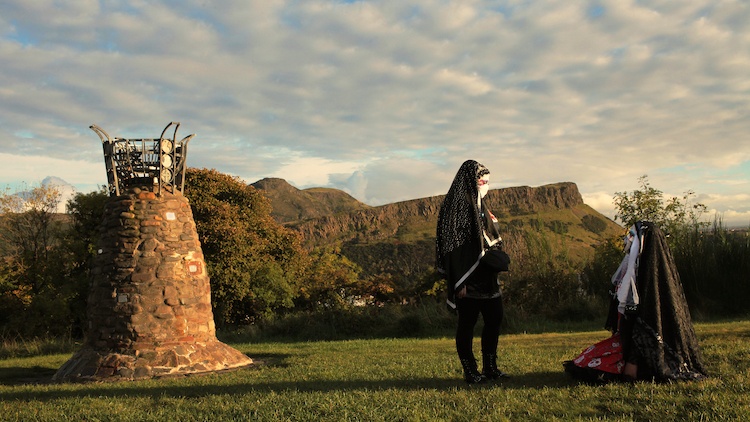
Ling Lee
SDI: How did the idea for The Black Veil come about?
Ling: I became interested in The Order of Perpetual Indulgence after I was told about them by a friend of mine who is an Interfaith Minister. When I first met the Order, Brad (they / them) was one of the Sisters in attendance. To my knowledge, Brad was the first non-binary person that I had met – and so I was curious to find out more. I’m always drawn to people who are going through a transitional period of some kind and are struggling to feel accepted in some way.
During my research, I asked people about their knowledge of non-binary gender – and it quickly became evident that there was a lot of confusion and misunderstanding around the topic. Ultimately, there were two key elements that inspired me to make this film; Brad’s involvement with the Order, and his personal journey in regards to gender.
Why is it important to make this film? Why now?
Currently, it feels like there are a lot of divisive discussions around gender diversity. I suspect that these discussions will become more and more common as gender continues to become increasingly varied. As I discovered in my research, many people are unaware of non-binary gender or the fact that it is possible to consider identifying as anything outside of the male/female binary distinction.
I also realised that the term ‘gender’ is often confused with a person’s sexual preference. I feel it is important for people to know about gender diversity – so we can all approach an inclusive way of living together. I would love this film to encourage healthy conversation around this subject.
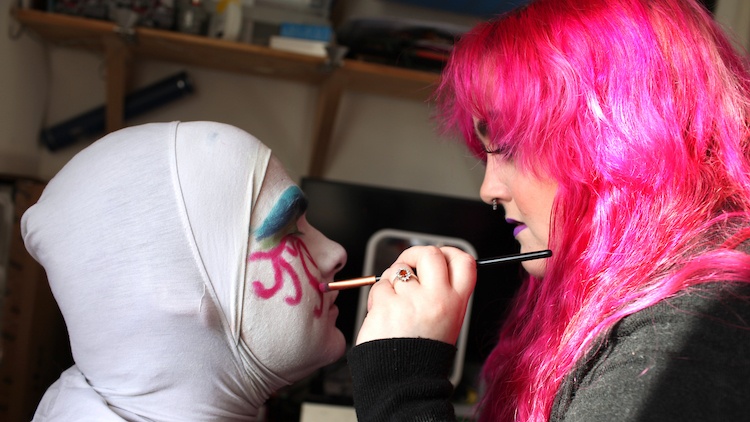
Did Brad and Emma need much convincing to take part?
No, it didn’t take much convincing at all. Nonetheless, I felt it was important to meet them and speak to them a number of times – so they could get to know me and my intentions as a filmmaker. Brad was already used to working with the media from this involvement with the Order – so speaking to me wasn’t a radically new thing for them. Brad needed to consider the fact that a film would reveal more of their personal life – but again, it seemed to be a fairly easy decision. Once Brad was happy to be filmed, I spoke to Emma and she also quickly gave me her blessing.
What were some of the ethical considerations you had to take into account while making the film?
There are always ethical issues to be considered when making a documentary. For example, it was important to speak to Brad about the fact that they would be revealing some elements of their personal life. It was vital to have these personal elements in the film so that the audience could connect with Brad’s emotional journey, the story, and the subject matter. Another thing I needed to consider was how certain things would come across in such a condensed, 30-minute edit for TV.
For example, some of the things Brad talks about are quite nuanced and relate to various past experiences – and therefore could be misinterpreted if edited down too much. We had to find a balance between representing Brad authentically and making a compelling journey within the time constraints. Ultimately, we hope that this film can have a positive effect, ethically speaking, in regard to healthy discussion and thinking around gender diversity.
You started making The Black Veil before the pandemic. What impact did that have on the finished film?
The production really started just after the first lockdown. As for every filmmaker, this has been a huge challenge, not only for us but also for the contributors. Sadly, there were quite a few scenes we had planned to shoot which we had to drop. A particularly big moment which we were unable to film was Brad and Emma’s wedding. This was because the pandemic caused the wedding to be continuously postponed.
The result of these omissions was that the film became less observational than we had planned. I would have preferred to tell the story almost purely from an observational perspective – but the pandemic meant this really was not possible. Having said that, I am really happy that we managed to make a film I am proud of – and that the core of the story remains unchanged.
Bradley
SDI: Can you remember your first response when Ling approached you with the idea of making The Black Veil?
Bradley: I think my first response was a mixture of disbelief, apprehension, and excitement. This was mainly due to having that general self-doubt people get about not being interesting or important enough for such attention, as well as being concerned about what sort of demands I was going to be making of my partner as well as others to be a part of this. But it was also really exciting to think about the unique opportunity on offer and how it would be able to give the public an understanding of being non-binary and giving people a look into activism in the LGBTQ+ community. The excitement won out in the end.
How did you know that Ling was the right person to tell your story?
Having the chance to meet Ling with a few other members of the Order before anything had been finalised was really helpful, as Ling came along and wanted to know more about us as well as giving us rough ideas for what they were thinking in terms of this project. They seemed really open and willing to learn more about what we get up to as the Order of Perpetual Indulgence and they felt like a genuinely nice person who would be good to work with.
Then, after spending a whole day chatting with Ling about myself and various topics, along with what they were thinking about the potential film, it seemed like there was a good chemistry and that this was someone who was genuinely interested in the story being told rather than coming in with a specific agenda as can sometimes happen in sensitive topics such as gender identity.
As things needed to be changed about and managed with Covid-19, Ling was always upfront and clear in the health and safety precautions we needed to take, which just further cemented the feeling that this was someone who was definitely a safe pair of hands to work with, as they wanted to make sure people were as safe as possible if taking part in the film.
Was it easy to convince your family and friends to take part in the film?
I think once I got over my initial apprehension in approaching certain topics with my family, it was fairly easy to get them on board with being in the film. My family are quite supportive and were fairly happy to be involved once I let them know what it would be about and what they would be needed for. A lot of the difficulty was probably from myself and the awkwardness of broaching topics that I haven’t really discussed with my family before this. And friends generally know I will end up roping them into some creative endeavour at some point along our friendship, so it wasn’t too hard to convince others either.
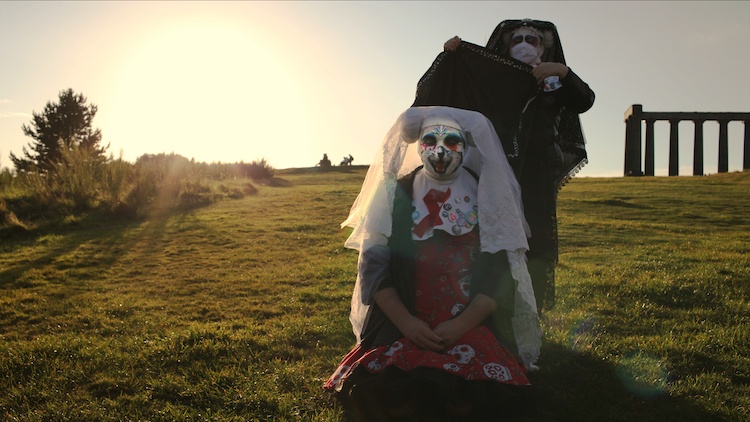
What sort of impact would you like the film to have on others in similar situations to yourself?
Although I am only one person and each person’s experience and understanding will be unique, I would hope that the film is able to give the general public a better understanding of what it means to identify as non-binary and hopefully helps with challenging gender stereotypes and all the issues that come with that. For people who may be in a similar situation like myself, whether that is already identifying as non-binary or just starting to question how they feel about their gender identity, I hope it helps them feel less alone – having representation in media is really important – and it gives them a jumping off point in their own research.
The Black Veil is available to watch from 10.30pm on Tuesday 3rd August on the BBC Scotland channel and BBC iPlayer.
Subscribe to our newsletter for the latest SDI updates, or follow us on Facebook, Twitter and Instagram.
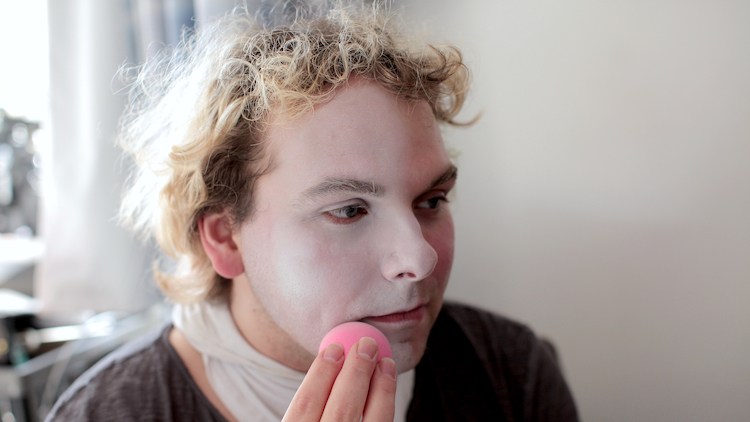
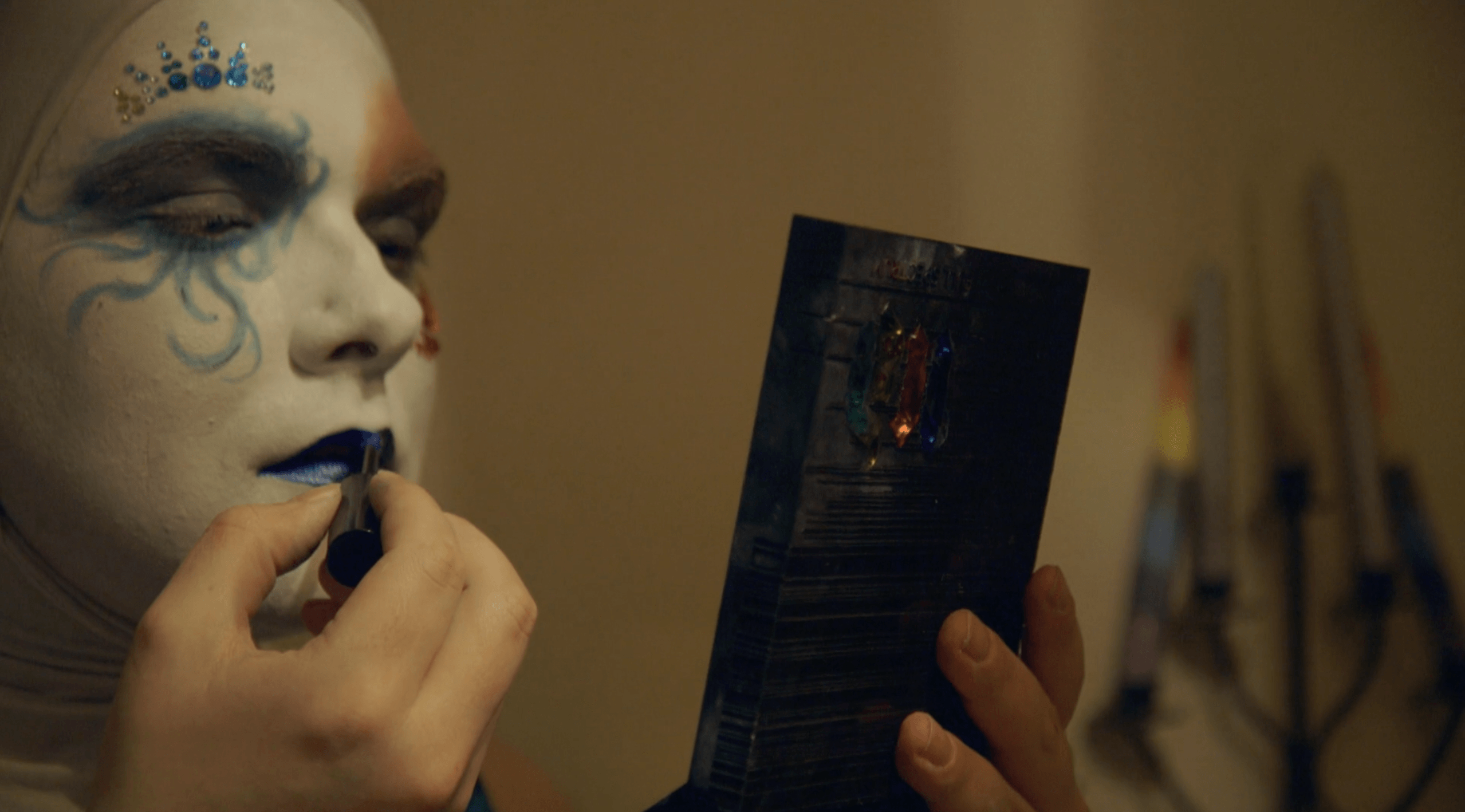
Fabulous interview! So looking forward to seeing this. Well done Ling and Bradley, and to Dun Eideann.
Blessings, love and sparkle to you all!